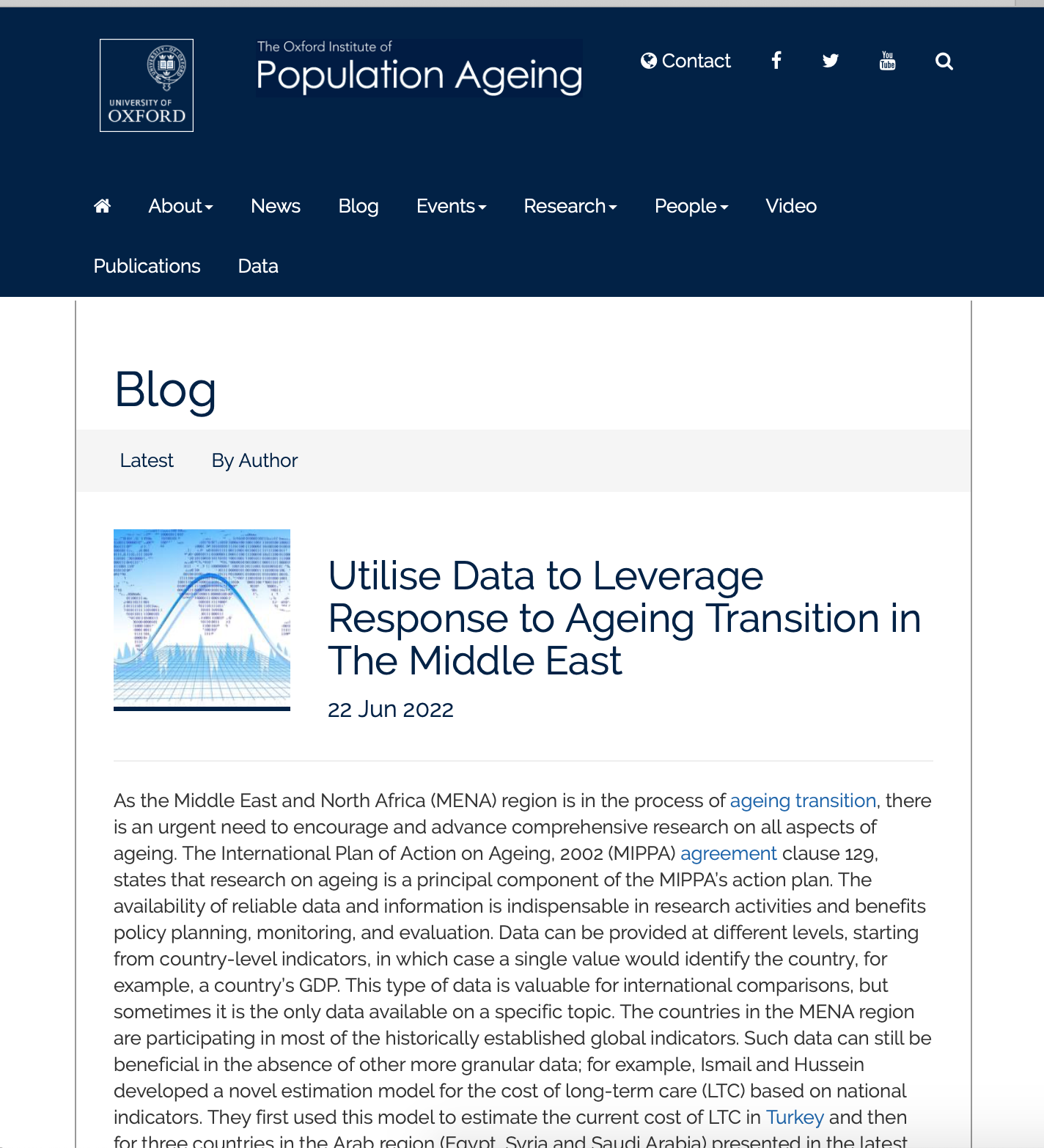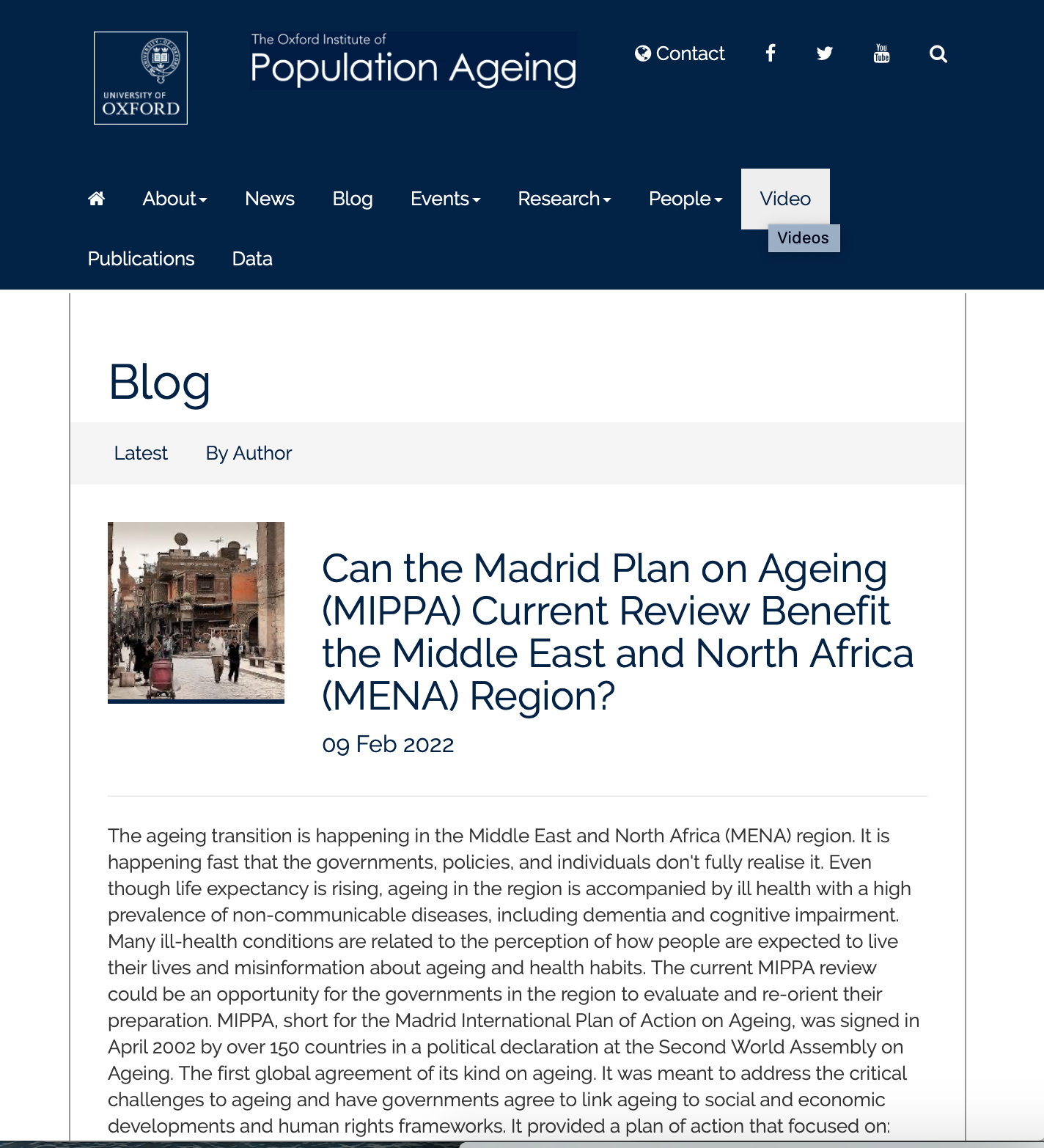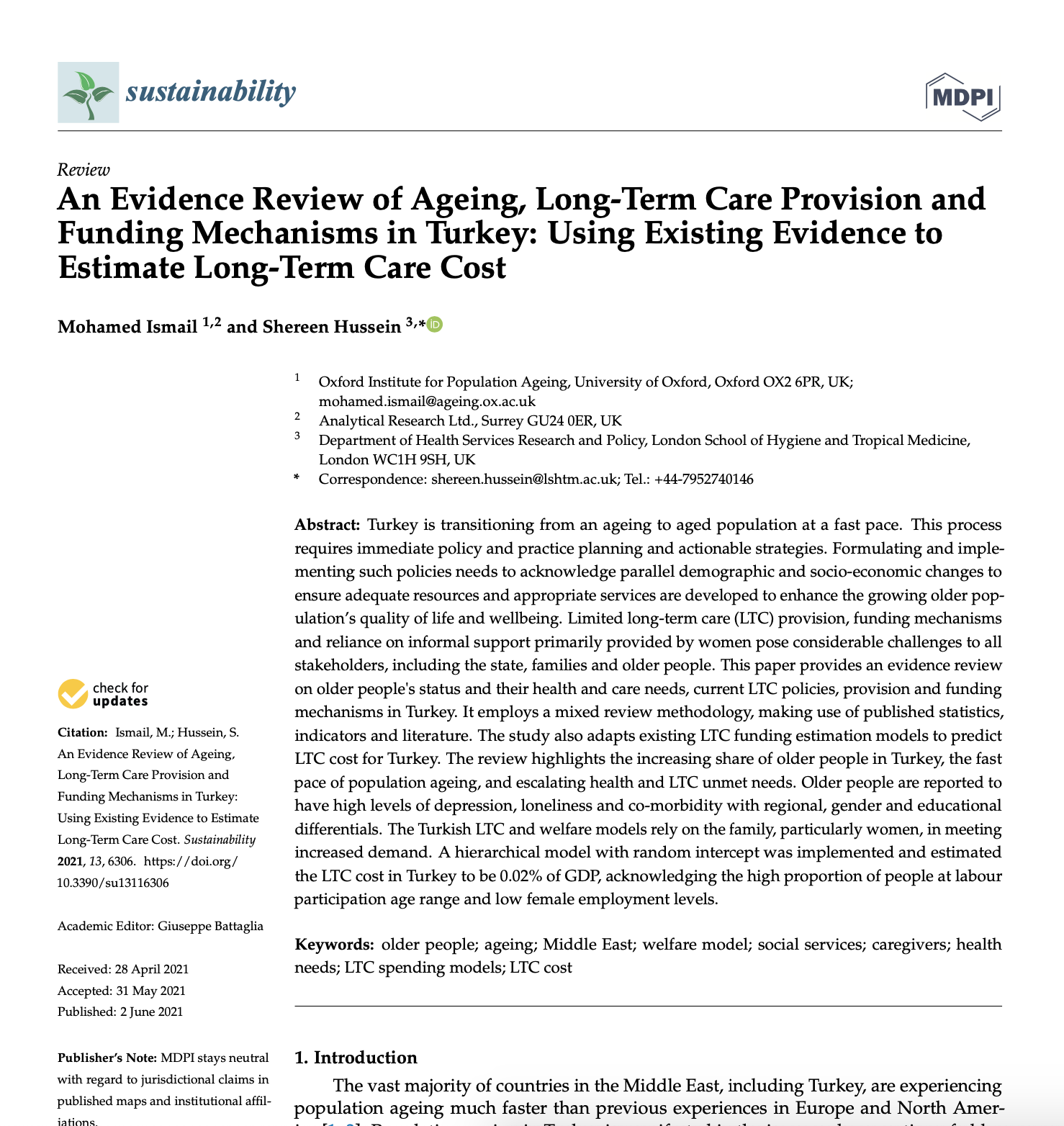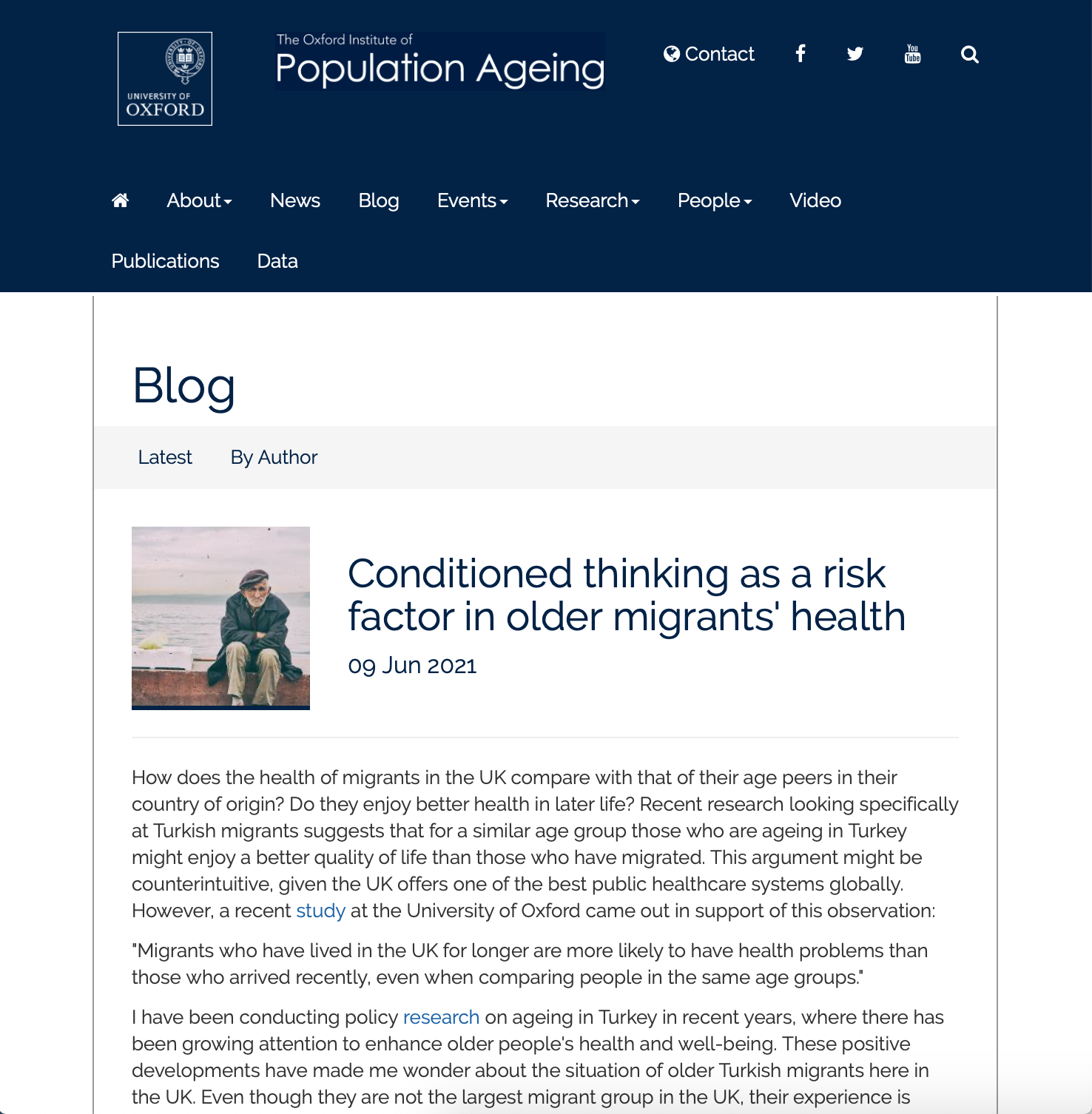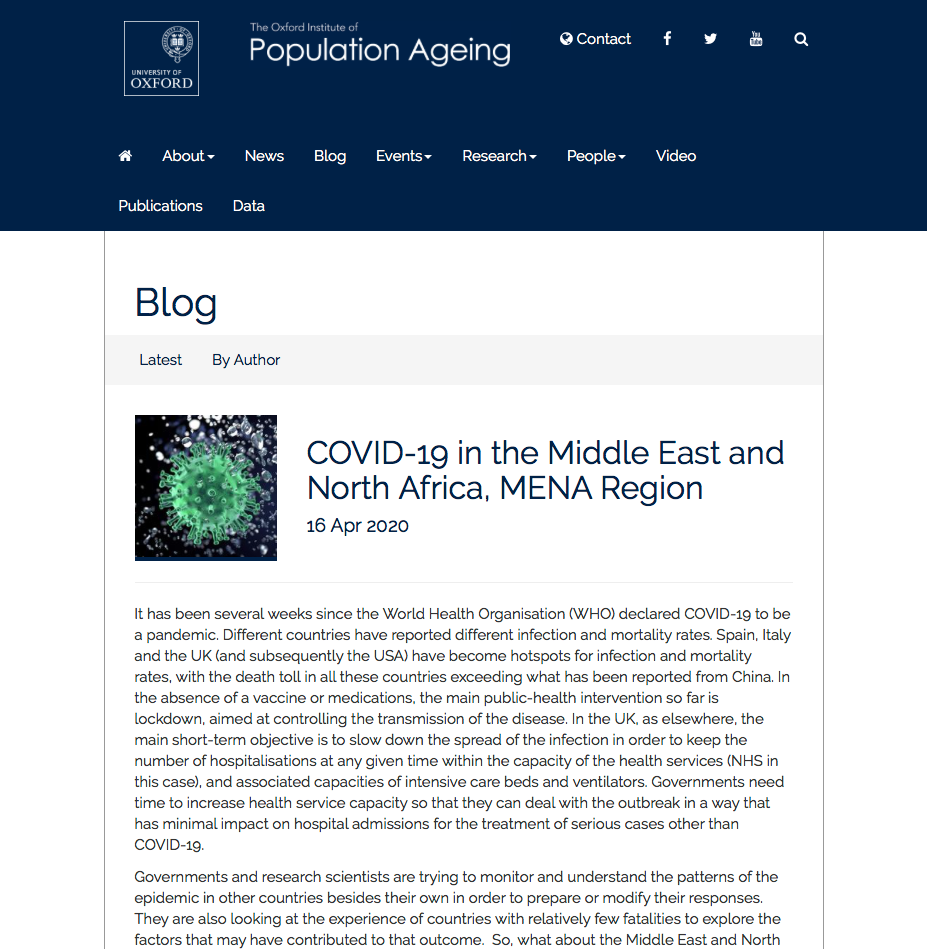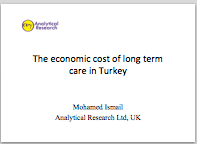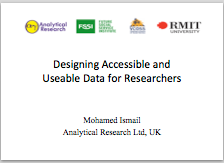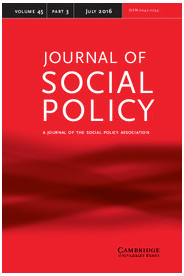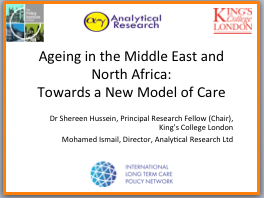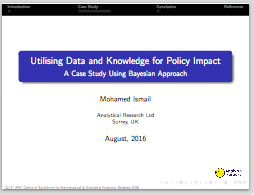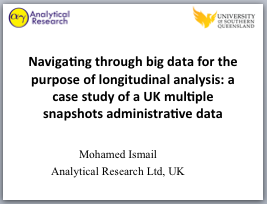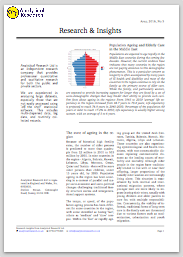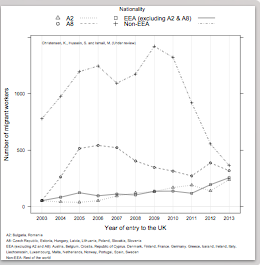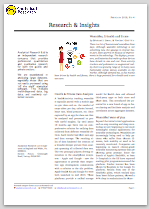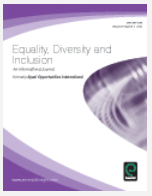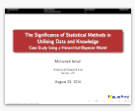
Social Inclusion Policies in Turkey
Program of work funded by the European Union Aid and the Turkish government to provide Technical Assistance for Increasing the Ministry of Family and Social Policies' Institutional Capacity in the Field of Social Inclusion Policies. The objective was to promote an inclusive labour market with opportunities for disadvantaged people, with a view to their sustainable integration into the labour force and combat all forms of discrimination in the labour market.
Also, to provide technical assistance to develop an integrated model of social and health care services for the elderly with Alzheimer's and Dementia to address the problems they face, social and health issues. The models developed by considering both: best international experiences in the field and the lessons learned of the existing national social care services and the national peculiarities.

Wearables, E-health and E-care
Wearables technology is continuously improving and even though it may currently be too expensive for universal access, it is expected that the cost will be reduced over time, making it increasingly accessible. As part of our work at Analytical Research, we have been involved in research and development of prototypes for assistive living and have first hand experience of the potential that these solutions offer to the health and care sectors. In the not too distant future we envision that these new paradigms for e-health and e-care will be a much more familiar part of our daily life. For more information, see our related Research & Insights.

Social Development Strategy
Analytical Research Ltd was commissioned by a leading UN organization to help setting up a framework for social development strategy for a GCC country. We had the lead responsibility of the pillar focusing on social care development over the next 25 years, covering objectives, legislations and estimated budget. The project constituted of several stages, including field surveys, data analysis, workshops with various stakeholders including Ministers and Under Secretaries. In developing a new model, special attention was given to data and its analysis along with the evidence available from global good practice on different thematic areas. We paid attention to draw on global models of care and social rights while observing culture and traditional values taking advantage of the positive aspects of the GCC context. The strategy is designed to increase the protection and respect of the rights of women, children, older people, and people with disabilities and to draw more on the active role of the state for support and protection working in partnership with individuals and the community. This strategy constitutes a significant development in the Gulf area and likely to have implications over neighbouring countries.

Stock Price Modelling
As part of Analytical Research Ltd's financial analysis portfolio, we constructed various stock-price modelling methods, investigating causalities between different stocks and evaluating trading algorithms
(see related Research & Insights). Models
based on time series analysis were implemented to estimate volatility, including GARCH models; various other econometrics
and multivariate statistical techniques have also been used for risk management.

Longitudinal workforce changes
Social care is increasingly gaining policy attention, as the demand for social care increases so does the demand for the workforce. This project focused on using existing data to understand longitudinal changes in the social care workforce. Working with the SCWRU, Analytical Research Ltd took the task of constructing longitudinal records from existing national data. This included designing and implementing efficient numerical algorithms capable of handling data, that has a size of over 11 million records, to invistigate different workforce related research questions. You can download our
Research & Insights for a breif read about longitudinal data analysis.

Work force diversity, focusing on ethnicity
Recently, Analytical Research Ltd has completed research project analysing the dynamics of participation of British BME workers in the long-term care sector, separate from that of migrant workers. The analysis highlights the potential to actively promote social care work among British BME groups to meet workforce shortages, especially at a time where immigration policies are restricting the recruitment of non-European Economic Area nationals. We analysed a new national workforce data, the National Minimum Data Set for Social Care (NMDS-SC), with a sample size equal to 357,869. We employ descriptive statistical analysis and a set of logistic regression models. See Hussein, S., Manthorpe, J. and Ismail, M. (2014) Ethnicity at work: the case of British minority workers in the long-term care sector. Equality, Diversity and Inclusion: An International Journal. 33 (2).

Risk, Safeguarding and Personal Budget
Personalisation is about tailoring services to the needs of the end user, often through greater choice and control for the service user. One of the main mechanisms for personalisation is personal budgets, whereby people are given real budgets (direct payments) or virtual budgets with which to arrange their own services. However, there are fears that people using personal budgets may be at greater risk of abuse and neglect than people using conventional services if they purchase unregulated care, or rely on relatives to manage their budget. The policy of 'safeguarding' is about enabling people to maintain independence, well-being and choice, while also securing the right to live a life free from harm.
Not enough is currently understood about the relationships between personalisation and safeguarding and how these two different strands of policy actually work alongside each other in practice. This project seeks to improve the evidence base in this area.
This project is a collaboration between Analytical Research Ltd, King's College London, University of York and Coventry University. The project is funded by the National Institute for Health Research (NIHR), School of Social Care Research (2012-2014). Analytical Research Ltd is responsible for the design and implementation of quantitative models in relation to national and local data on safeguarding and incidents of abuse. For more information, see workshop slides presented at London School of Economics.

Male workers participation in care sector
Analytical Research Ltd has completed a research project analysing the participation of British male workers in the long-term care sector. Labor market changes, including growing opportunities to work in the long-term care (LTC) sector. Analyzing an English national workforce data-set we investigated whether men are crossing traditional boundaries into more emotional, and personal care work. We examined organization, local area effect, and service provision on the probability of attracting more men to the workforce. The analysis utilized multivariate statistics and mixed-effect models. The findings highlight both horizontal and vertical segregation in the types of jobs undertaken by men in the LTC sector. See Hussein, S., Ismail, M. and Manthorpe, J. (2014) Male workers in the female-dominated long-term care sector: evidence from England. Journal of Gender Studies, DOI: 10.1080/09589236.2014.887001.








